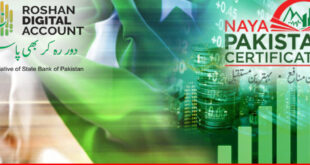With the positivity instilled with the current government, most segments of the economy are showing positive signs of growth. When talking to businessmen on market potential, most say that the sector which is the best choice for investments is the retail sector. Pakistan has population of 180 million people, and frankly, the only entertainment is food and shopping. The demand of both food and shopping is counter to the state of the economy, therefore, whatever the inflation numbers maybe, food and clothing will always be in high demand. New and emerging avenue for both seems to be the concept of malls. Major designers aim to have space available in all and any upcoming malls. The biggest success factor seen recently has been Dolmen Mall in Clifton. There are many other construction projects under way e.g. The Bahria Icon and Arcadian Mall in Defence. Retailers themselves now prefer to be in a mall since as it has become a safer and ensures constant consumer traffic. Malls not only offer shops but accommodating the chain of restaurants. Most would go to malls for window shopping and to spend time away from daily chores. In the process, lunching or dining out almost always becomes an option. Retail businesses in such malls have thrived and more and more international chains aim to find spot available to commence business. The management of the malls aimed to bring in international and well renowned brands to attract consumer footfall.
The retail business requires capital expenditure which may take more than 6 to 9 months before a retail business is established, even on a small scale. Malls are undoubtedly an attractive option, however, cost of establishing business is high.
Returns are high whereas margins between costs and sale price can range between 50 percent to 100 percent enough to meet all operational expenses. Depending on the brand, investments can be recovered within a given year. Renowned brands with high consumer traffic claim their investments are recovered in less than 6 months to 8 months from the date of opening and whereas rent for the month is recovered in the first three to four days of sale. The restaurant business in a mall seems to be the most lucrative since returns are generally 200 percent to 300 percent of cost with having perpetual demand ensuring continuity of business. Investments in equipment and setting up of the kitchen could cost between Rs3 million to Rs5 million with estimated recovery of investments within 6 months. Setting up a larger restaurant within in door seating costs anywhere between Rs8 million Rs12 million. To set-up a restaurant business, a percentage of sale, which could be anywhere between 5 percent to 8 percent must be given to the mall management. Considering business options, the restaurant business seems to be the most lucrative if the food is delivered as per the expectation of customers who return and tell others.
In Pakistan, the only entertainment people have is either food or shopping and that too in a mall, which adds to the investment value of the customer. Pakistan, especially Karachi needs more malls, which can be seen under construction in more affluent areas. Despite the fact Karachi is the hub of terrorism and street crime, the city offers vibrant life, not found in other cities of Pakistan. Also being the business hub of Pakistan, opening up of more malls will be a win-win situation for investors and for banks financing such projects. International brands are not consciously seeking presence in Pakistan, its actually the investors who are bringing these franchise to Pakistan, which benefits the customers and franchisor alike. Starting a business most definitely is the next way forward for any investor to capture the market. Investment is relatively small and can be pulled through a medium term loan and partnerships. Imagine the number of new restaurants which have sprung up in Pakistan in 2013 and 2014.
The FMCG business, the products that become part of the retail segment is expected to register minimum 15 percent growth in the next 5 years where some companies are averaging more than 20 percent growth. There is no other segment of the economy, which is showing these growth numbers. FMCG shares have posted the best returns on the stock market. With influx of malls and mega stores e.g. Hyperstar and Macro, demand is expected to improve. FMCG products are required daily, hence whatever the food price, demand will remain unaffected. Traders benefit as they import various brands not sold in the domestic market and fill the gap for those who need. The retail segment itself is viewed more than just shopping; it simply has become form of entertainment for the masses. Further looking into the same opportunity, small retails have set-up shops in various localities, which provide convenience to the people. Major household expense is food and clothing, hence, segments which include any form of retail and restaurants will undoubtedly become the best bet to start the business and see it through its successes.
Through opportunities exist all over Pakistan in all major cities, Karachi is the business hub and the most populous city, which becomes an obvious choice for any business. Karachi mainly accounts for night life as retails open shop close to noon. Major concern is the law and order issue, which the government is trying to control but is yet to make progress. Cash movement is at its risk from retail store to the bank. To counter this risk, banks have started opening branches within the stores. Further, two banks have started 7 day banking until late hours within the mall, which not only adds to the convenience of the customers but also the shop keepers to dispose their cash. When the benefits overweighing risks, the retail sector is not a bad choice for long term investments.
 PAGE Blog Business Weekly Magazine
PAGE Blog Business Weekly Magazine

